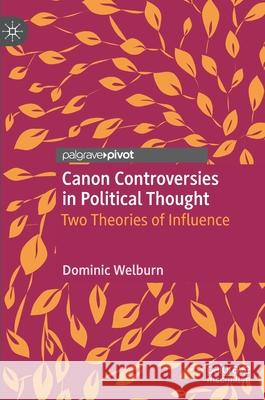Canon Controversies in Political Thought: Two Theories of Influence » książka
topmenu
Canon Controversies in Political Thought: Two Theories of Influence
ISBN-13: 9783030413606 / Angielski / Twarda / 2020 / 136 str.
Kategorie BISAC:
Wydawca:
Palgrave Pivot
Język:
Angielski
ISBN-13:
9783030413606
Rok wydania:
2020
Dostępne języki:
Ilość stron:
136
Waga:
0.32 kg
Wymiary:
21.01 x 14.81 x 0.97
Oprawa:
Twarda
Dodatkowe informacje:
Wydanie ilustrowane











